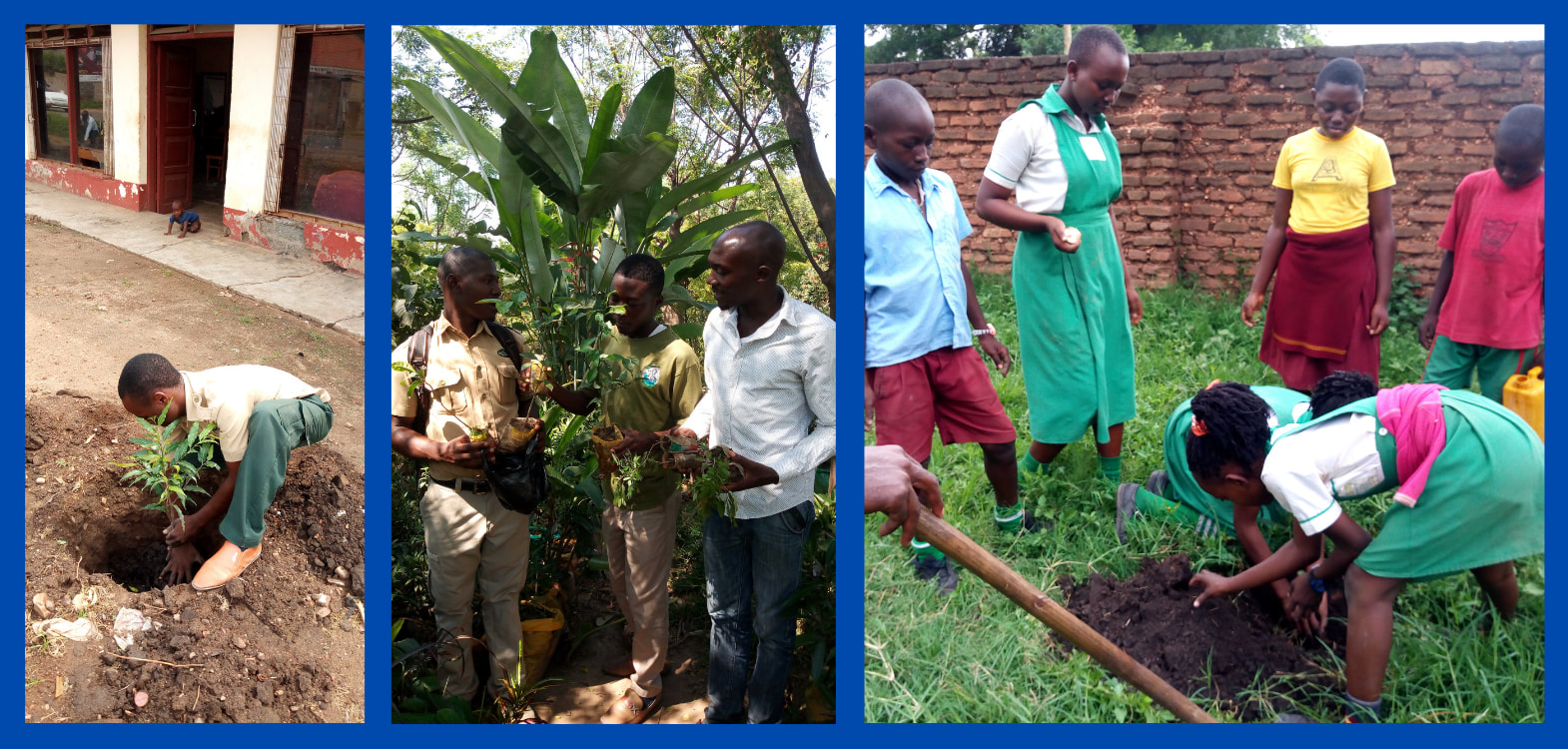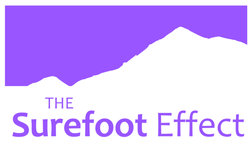|
From engaging people in nature conservation and creating crafts from plastic waste to inviting visitors to take part in the daily lives of private homes, Eco Hub Africa in Western Uganda strives to empower people and places. With increasing flooding impacting daily life and health of humans and nature, local understanding and knowledge sharing on a global scale are required to create a sustainable life. Ripple effects of climate change At Surefoot we talk with people from organisations around the world, to get firsthand insight into climate change and environmentally friendly actions. An online conversation with Goodman Bwambale and William Bwambale, who are Environmental Management leaders at the organisation Eco Hub Africa in Kasese, Western Uganda, illustrates the ripple effects of climate change. The Kasese district is surrounded by several national parks, among these are Rwenzori Mountains National Park and Queen Elizabeth National Park. The snowcapped Rwenzori mountains, known as mountains of the moon, includes the Margherita Peak which with more than 5100 meter is the highest summit of the Ruwenzori Range in East Africa. Environmental impacts in Kasese carve deep traces in both natural and residential areas. Citizens, residences, hospital and national parks are affected by increased flooding. The river Nyamwamba in the Kilembe subcounty Kasese district floods every year, but the amount of water is increasing, and flooding is now happening outside the typical season. In 2016 there were 25,445 people effected by flooding, in 2020 the number was 120,000 people.[i] The Kilembe Mines hospital, which since 1951 has been a ‘health sanctuary’ for most communities in western Uganda, was destroyed by flooding in May 2020. It’s still not recovered from the effects of the catastrophe. The same day of our conversation, William followed up by email to say that the river Nyamwamba had just burst its banks causing devastating flood in the lowland of Kilembe Valley and parts of Kasese municipality. The Rwenzori mountains is a catchment area of major rivers as Nyamwamba, Mubuku, Lhubiriha and Thako. These rivers have been flooding since 2013 causing loss of life, loss of property and displacement of people in the Kasese district and impacts on the natural environment and ecosystem. “When flooding causes the riverbanks to burst, waste is being transported from the residential areas in the valley into natural habitats, where for example toxic substances pollute Lake George and Lake Edward in the Queen Elizabeth National Park. This includes killing the fish,” Goodman explains. Nurturing the sprouts Goodman points out that whereas burning fossil fuel is the primary source of carbon emissions many places on the earth, a great part of the emissions in Africa is caused due to households’ dependency on woodburning as an energy source. Another environmental problem is plastic waste which is to be found everywhere. The core work of the Eco Hub Africa is activities providing skills to especially children and to mothers with no formal education. Nature conservation, creating crafts of plastic waste, and taking part in training for the tourism industry are central areas. William and Goodman, both with a background in the tourism industry, organise free hosting of travelers and volunteers to provide an opportunity to exchange experience with the local people in private homes. At the Eco Hub Africa, birthdays are celebrated by inviting people to join tree planting and to make crafts of plastic waste. When working with children, Goodman and William witness the development of care and engagement in the natural world which nurtures the future conservationists. However, the persistent, ongoing engagement by many is a crucial factor when you try to make positive ripple effects with sustainable outcome. To grow long-term solutions in web of communities “One thing is to plant seedlings, another is to nurture the growth of the trees,” states Goodman. During our conversation, it’s pointed out that environmentally friendly projects should be founded in holistic perspectives, long-term planning and knowledge of the local area. More people are needed aboard as natural conservationists, to have supportive hands to take responsibility for plants as well for sharing knowledge. It’s not enough to initiate projects, they also need to be adjusted to local areas and supported in the implementation phase until they are up running. As much as global cooperation is important in a worldwide climate crisis, it is essential to know the ground you stand on, no matter where you are in the world. Goodman and William aim to reach out to the broader community, to obtain knowledge sharing across borders and global coordination. “We need joined efforts,” they say when they remind me of the recent flood in New York. As basement apartments were filled with water in no time, at least 14 people were killed in the flooding in New York, New Jersey and Pennsylvania.[ii] As William ends in his updating email, “Climate change does not affect only Africa, it affects the whole World.” Contact William Bwambale if you would like to know more about Eco Hub Africa: [email protected], WhatsApp +256789434763. By Gazelle Buchholtz [i] Source: https://www.infonile.org/en/2021/05/kasese-battles-the-aftermath-of-destructive-floods/ [ii] Source: https://www.theguardian.com/us-news/2021/sep/02/new-york-flooding-state-of-emergency-ny-city-flash-flood-nyc-hurricane-ida-remnants
0 Comments
Leave a Reply. |
�
AboutHere’s a collection of some of our articles which have been in our newsletters or published elsewhere.
Archives
May 2024
|
Sign up TO SUREFOOT NEWS >>The Surefoot Effect equips people, communities and organisations with skills for sustainability and resilience.
|

 RSS Feed
RSS Feed




